Blog
Colorado is the next state to pass AI bill
On May 17, Colorado passed comprehensive AI legislation. Learn more about the consumer protections in this bill, and what it means for developers and deployers of AI systems
Lauren Diethelm
AI Content Marketing Specialist
May 24, 2024

On May 20, 2024, the Colorado state legislature announced that the governor had signed Colorado’s comprehensive AI act into law on May 17. The “Concerning Consumer Protections in Interactions with Artificial Intelligence Systems,” also called to Colorado AI Act (CAIA), is the first comprehensive and risk-based approach to AI in the US.
Set to take effect on February 1, 2026, the CAIA aims to protect Colorado consumers from algorithmic discrimination and ensure transparency and accountability from developers and deployers of AI systems.
Definitions
The CAIA defines an AI system as “any machine-based system that, for any explicit or implicit objective, infers from the inputs the system receives how to generate outputs, including content, decisions, predictions, or recommendations, that can influence physical or virtual environments.” Although the phrasing differs, this definition is similar to how the Utah AI bill defines AI.
A few other key definitions to understand in the CAIA include:
Algorithmic discrimination: Any condition in which the use of the AI system results in an unlawful differential treatment or impact on an individual or group of individuals that’s protected under state or federal laws
Consequential decision: Any decision that has material or similarly significant effect on the provision or denial to any consumer in areas like employment, education, financial services, and health care and housing
The Colorado AI Act focuses largely on high-risk AI systems, which it defines as any AI system that makes, or is a substantial factor in making, a consequential decision.
This definition of high-risk system differs from that of the EU AI Act, which focuses more specifically on identifying systems that have a significant harmful impact on health, safety, and fundamental rights. The CAIA definition of a high-risk system does not include:
An AI system that’s intended to perform a narrow procedural task; or
Detect decision-making patterns or deviations from prior decision-making patterns and is not intended to replace or influence a previously completed human assessment
What’s included in the Colorado AI Act?
The CAIA requires a developer or deployer of a high-risk AI system to use reasonable care to avoid algorithmic discrimination in the system.
Once the bill is in effect, a deployer or developer of a high-risk system will have unique requirements to ensure that consumers are protected from potential discrimination, and that there’s sufficient transparency and accountability in the model.
Developer requirements under the CAIA
Under this bill, developers much maintain specific documentation, including a policy to comply with federal and state copyright laws, as well as a detailed summary of the content that was used to train the model.
Developers must also create, implement, maintain, and make documentation available to deployers who want to use the AI system. This documentation needs to:
Disclose a general statement regarding the reasonably foreseeable uses and known harmful or inappropriate uses of the system
Share information about the type of data used to train the system
State the purpose, intended benefits, and use of the high-risk system
Developers also are required to provide documentation explaining how the system was tested and evaluated for performance and mitigation before it was made available to the deployer.
Deployer requirements under the CAIA
Deployers, who use a high-risk AI system, will be required to use reasonable care to protect consumers from any known or potential risks of using AI. The CAIA requires deployers to:
Implement a risk management policy and program that is iteratively planned, implemented, and then regularly reviewed and updated
Complete impact assessments for deployed high-risk AI systems at least annually, and within 90 days of any intentional and substantial modification to the system
Notify the state attorney general where a high-risk system has caused or is likely to have caused algorithmic discrimination within 90 days or discovery
Consumer protections in the CAIA
Deployers have additional requirements designed to increase transparency around AI and ensure that consumers interacting with it are protected.
They must provide consumers with the opportunity to correct any personal data that the AI system uses to make any consequential decisions, and must provide the opportunity to appeal any adverse consequential decisions resulting from that system.
Developers and deployers are also required to disclose to consumers when they’re interacting with AI, and must provide information on how to opt out of the processing of their personal data – a requirement that mirrors transparency requirements in other state privacy laws as well as Utah’s AI bill.
What the Colorado AI Act means for organizations
Like the Utah AI bill, the CAIA continues the growing trend of state-level initiatives that are filling the void left by the absence of federal legislation regulating AI. However, unlike Utah, which focuses more on establishing working groups and commercial communications using generative AI, the CAIA takes a more comprehensive and risk-based approach to AI regulation.
As the map of comprehensive state AI legislation continues to fill out, it will become more important for organizations to choose which frameworks they want to align their AI governance operations to, and to proactively communicate those values to the rest of their workforce.
To learn more about how aligning to key frameworks early on can help steer your AI governance program, see which frameworks OneTrust’s AI governance committee chose and how we integrated that guidance in our own program.
You may also like

Webinar
Technology Risk & Compliance
Smarter TPRM in action: Using AI to drive efficiency and better risk outcomes
See how AI‑enabled TPRM transforms traditional vendor risk programs in this live demo, showcasing faster assessments, reduced manual effort, clearer risk insights, and smarter prioritization across the third‑party lifecycle to build a more scalable, outcome‑driven TPRM program.
March 25, 2026

Webinar
Technology Risk & Compliance
From regulation to resilience: Practical ways to operationalise NIS2
Learn how to operationalize NIS2 in this webinar, with practical guidance for applying requirements across third parties and critical suppliers, unifying teams, strengthening risk ownership, improving visibility, and using NIS2 to build stronger cybersecurity and operational resilience beyond compliance.
March 18, 2026

Webinar
Privacy Automation
Evolving privacy programs with AI: What’s new in the Winter ’26 Release
See a guided walk‑through of both foundational privacy automation capabilities and the newest Winter ’26 enhancements across the Privacy Automation Suite and AI Governance.
March 11, 2026

Webinar
Technology Risk & Compliance
TPRM in the age of AI: Managing risk while scaling smarter programs
Discover how AI is transforming third‑party risk management in this webinar, exploring governance of third‑party AI from intake to monitoring and how TPRM leaders use AI.
March 11, 2026

Webinar
AI Governance
Introducing the AI Governance Maturity framework
An introductory session on the OneTrust AI Governance Maturity Model that helps leaders benchmark their current state, understand the four maturity stages, and see how governance evolves from manual compliance to automated, lifecycle‑embedded enablement.
March 03, 2026
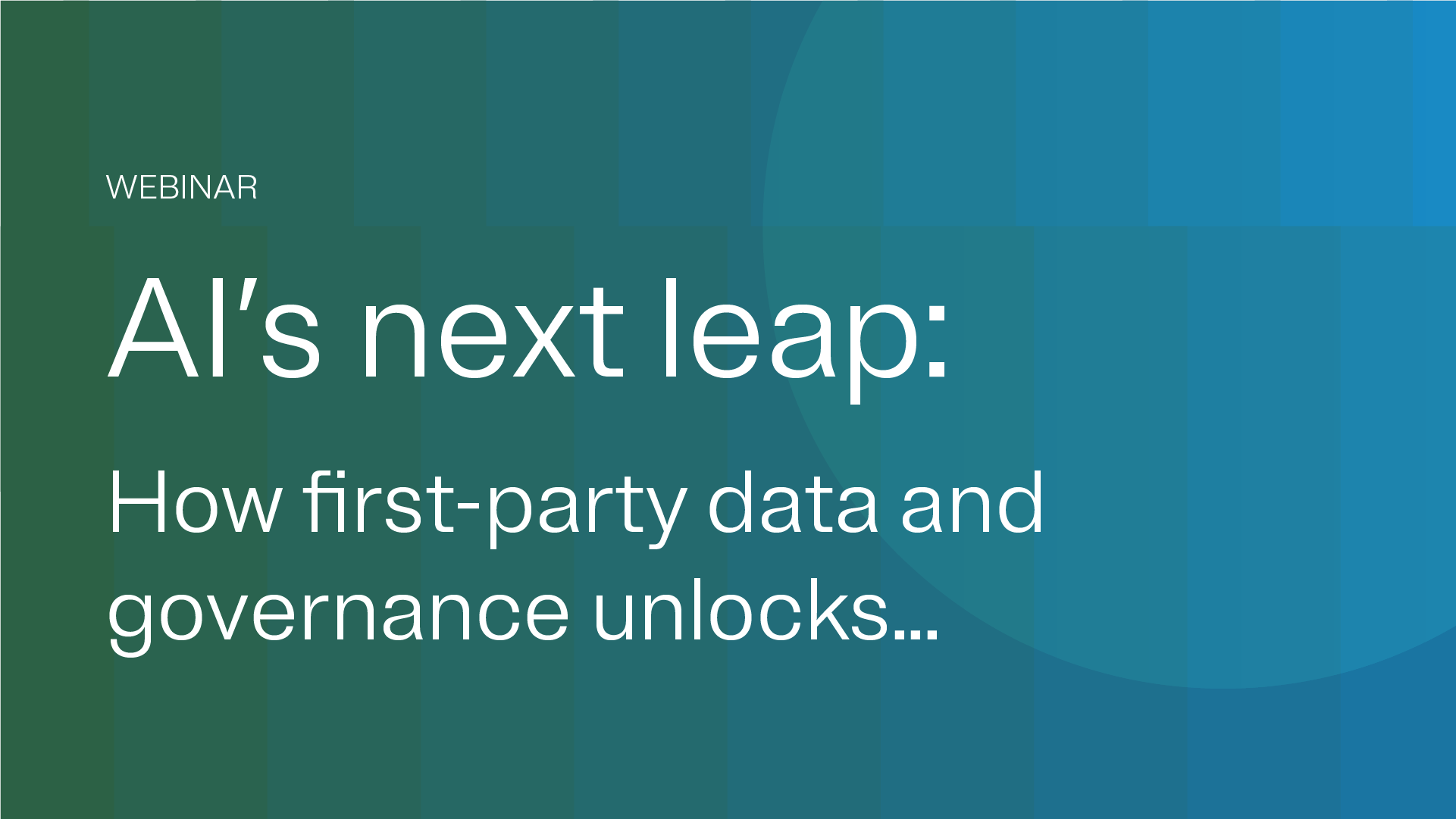
Webinar
Responsible AI
AI’s next leap: How first-party data and governance unlock personalization at scale
Discover how first-party data and governance unlock AI-powered personalization, bridging the gap from pilots to full-scale media transformation.
February 18, 2026

Infographic
Third-Party Risk
Accelerate growth: Uniting AI governance and risk management
AI risk can’t be managed in silos. Effective AI governance brings security, privacy, risk, and the business together to reduce exposure and accelerate innovation.
February 16, 2026

White Paper
AI Governance
The dream killer problem: Why traditional governance can’t keep up with AI
Learn what AI governance means today and how AI-Ready Governance provides a framework for managing risk while enabling responsible AI innovation.
February 05, 2026

In-Person Event
AI Governance
Risk on the road - Amsterdam
Discover how to safely implement and govern AI while managing risk and compliance in a complex, fast-changing regulatory landscape.
February 04, 2026

eBook
AI Governance
AI inventory essentials: Key components to AI governance success
Learn how airlines and automotive brands use consent-driven data models to build trust, enable personalization, and stay compliant.
February 03, 2026

White Paper
AI Governance
Governing AI in 2026: A global regulatory guide
Download “Governing AI in 2026”, a global regulatory guide for privacy and compliance teams navigating AI laws, enforcement trends, and operational AI governance requirements.
January 28, 2026

On-Demand
AI Governance
Data Privacy Day with OneTrust, featuring Forrester: What’s next for privacy in the age of AI
Join Forrester and OneTrust on Data Privacy Day for insights on the evolving privacy landscape and how AI is reshaping organizational expectations worldwide.
January 28, 2026

Webinar
AI Governance
Risk-ready AI: Embedding continuous risk reviews into your AI lifecycle
In this webinar, OneTrust AI Governance specialists will showcase how leading teams embed continuous risk reviews into design, development, and deployment so innovation doesn’t outpace oversight.
January 22, 2026

On-Demand
Privacy Automation
From compliance to impact: Embedding privacy across the tech lifecycle
In this webinar, learn how organizations operationalize privacy at scale by embedding privacy across the tech lifecycle.
January 20, 2026

In-Person Event
Privacy Automation
Data Privacy Day breakfast roundtable- Privacy in the age of AI
Discover how organisations are preparing for Data Privacy Day with practical insights on AI-driven privacy processes, compliance challenges, and future-proof strategies.
January 14, 2026

eBook
AI Governance
Why traditional risk frameworks fall short for AI
Discover how AI governance reshapes the Chief Data Officer’s role beyond data into security, compliance, architecture, and product strategy, and learn a 90-day strategy for AI governance.
January 08, 2026

Webinar
AI Governance
The AI Governance starter kit: Practical tools for compliance
Watch our webinar to cut through the noise and get practical answers. We’ll simplify the essentials of AI governance and show you how to take confident, compliant steps forward.
January 08, 2026

On-Demand
AI Governance
Operationalizing the Databricks AI Security Framework with OneTrust
Learn how OneTrust and Databricks operationalize the Databricks AI Security Framework (DASF) within AI Governance and GRC. Discover how this partnership bridges policy and execution, enabling security, risk, and AI teams to scale controls across your AI estate.
January 07, 2026

Report
AI Governance
OneTrust Recognized in the 2025 Gartner® Market Report for AI Governance Platforms
December 12, 2025

On-Demand
AI Governance
Accelerate innovation with AI governance: A live demo
Join our live demo to see how OneTrust AI Governance helps you inventory and manage AI responsibly, with built-in privacy, risk, and ethical controls—integrated into your existing workflows.
December 11, 2025

On-Demand
AI Governance
EU Digital Omnibus explained: GDPR, AI Act & ePrivacy changes
Discover the EU Digital Omnibus unveiled by the European Commission, updating GDPR, ePrivacy, and the AI Act. Learn about changes to data rights, DPIAs, cookie consent, incident reporting, and AI compliance in our expert panel discussion.
December 08, 2025

On-Demand
Risk-enabled innovation: Uniting AI governance and risk management to accelerate responsible growth
Join OneTrust’s CISO and Head of AI Governance & Privacy to uncover how risk and governance alignment drives responsible AI innovation.
December 04, 2025

On-Demand
Defining an AI agent policy: Governing the next wave of intelligent systems
In this webinar, OneTrust AI Governance specialists will show how leading teams embed continuous risk reviews into design, development, and deployment so innovation doesn’t outpace oversight.
December 02, 2025

White Paper
AI Governance
Launching an AI Governance Committee in 90 Days
Establishing an AI Governance Committee brings clarity, accountability and speed, helping your organization move faster with confidence.
December 01, 2025

On-Demand
AI Governance
One nation, many rules: Governing AI in the US regulatory maze
In this session, OneTrust AI Governance and Privacy specialists will explore how privacy teams can leverage the lessons learned from years of privacy program building to prepare for this next wave of AI regulation.
November 19, 2025

Infographic
Consent & Preferences
What's changing in consent with AI
Download What’s Changing in Consent with AI to learn how AI transforms consent and governance, what new data risks to address, and how marketing and privacy teams can turn trust into a driver of responsible personalization and innovation.
November 13, 2025

Checklist
AI Governance
AI Readiness Checklist for Privacy Leaders Checklist
Download the AI Readiness Checklist for Privacy Leaders to assess your organization’s governance maturity, align privacy and data teams, and build trust in responsible AI adoption through transparency, accountability, and compliance.
November 10, 2025
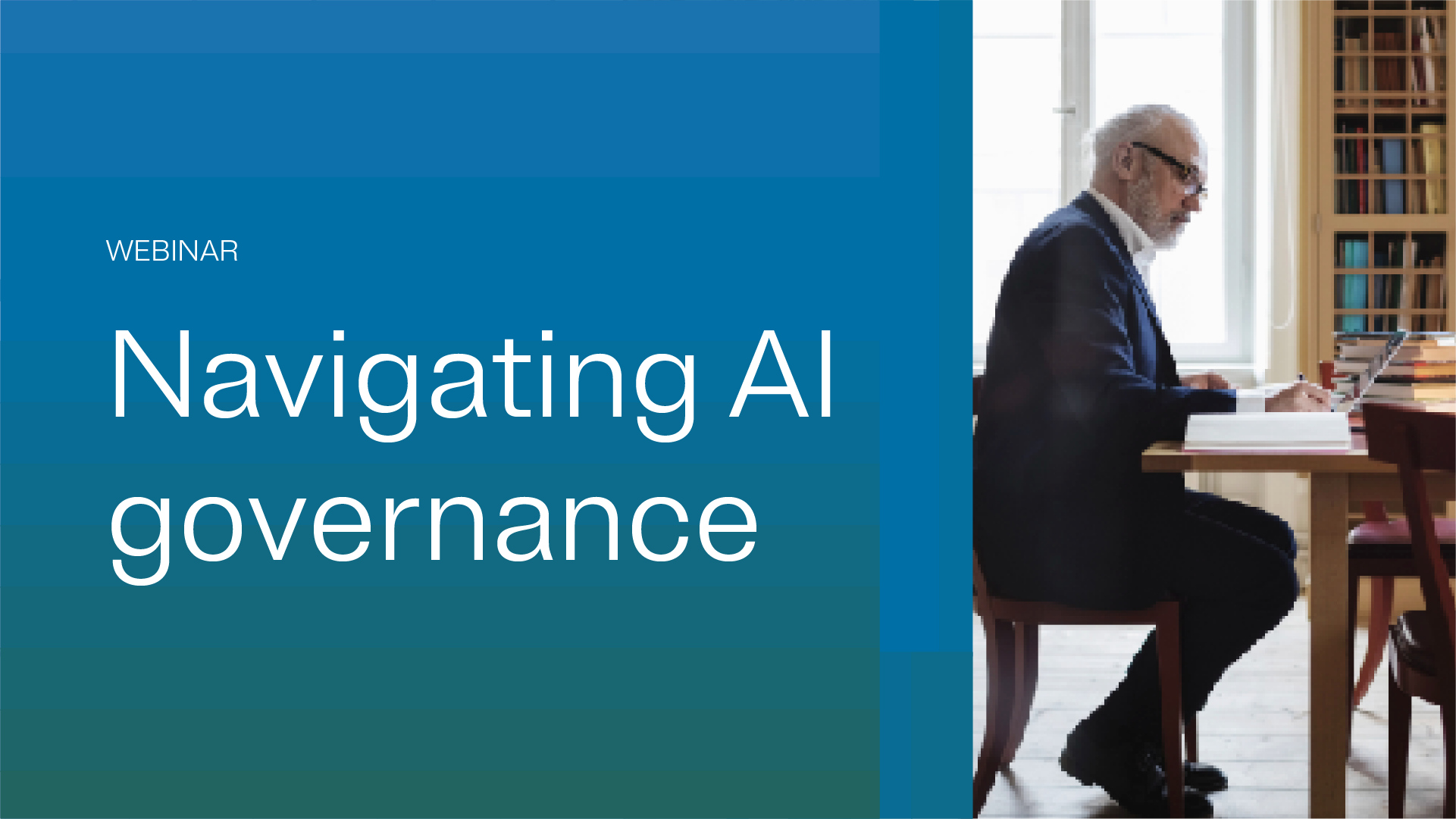
On-Demand
AI Governance
Navigating AI governance: Privacy compliance under Philippine law
Join this webinar to learn how the Philippines is activley sharing its AI Governance framework, with new guidelines from the NPC and updates to the DPA that impact how organisations deploy and manage AI systems.
November 06, 2025
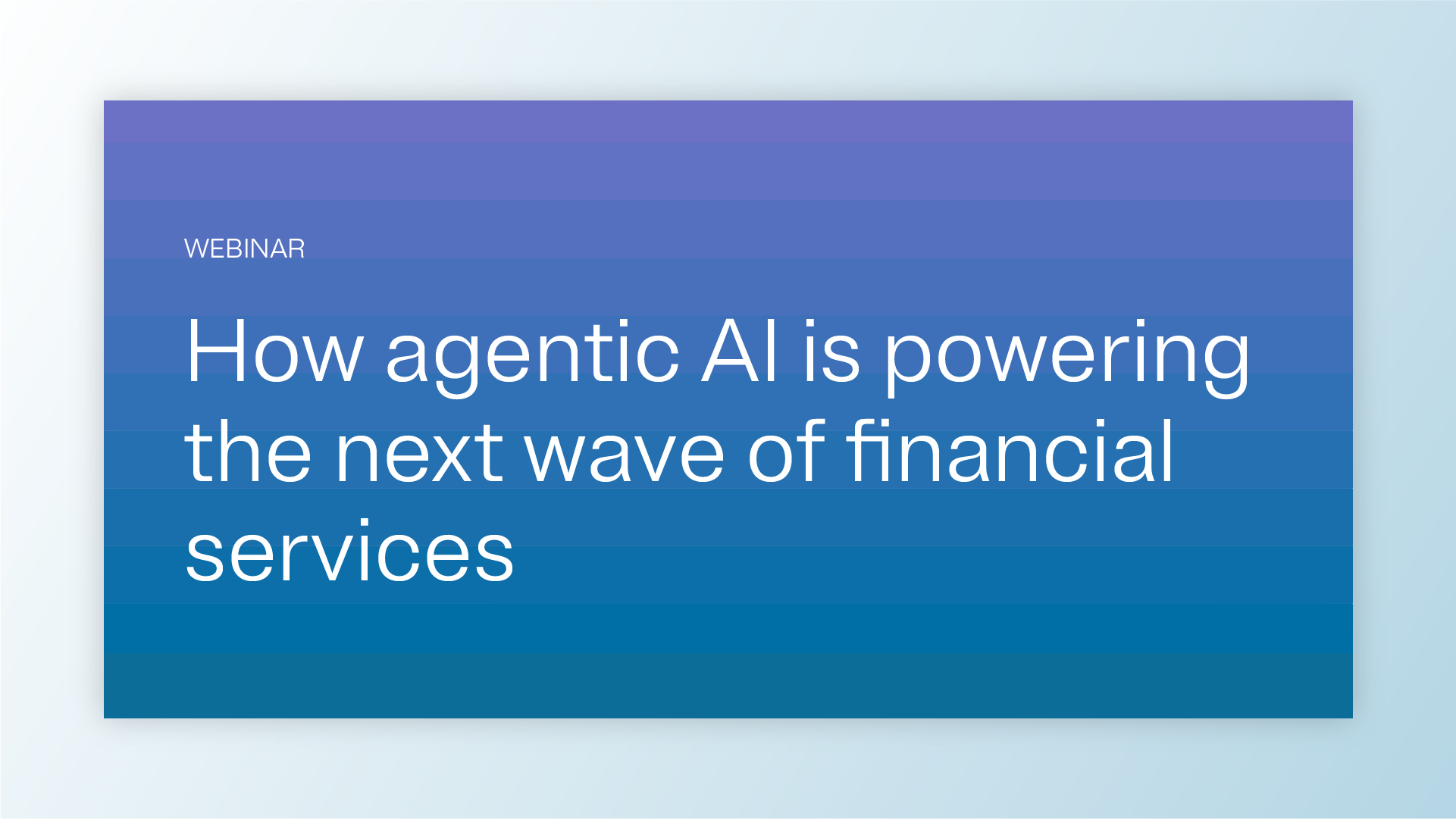
On-Demand
AI Governance
How agentic AI is powering the next wave of financial services innovation
This session will explore how distributed and democratized AI tools are unlocking new opportunities for innovation, while raising critical questions around governance, ethics, and trust.
November 05, 2025
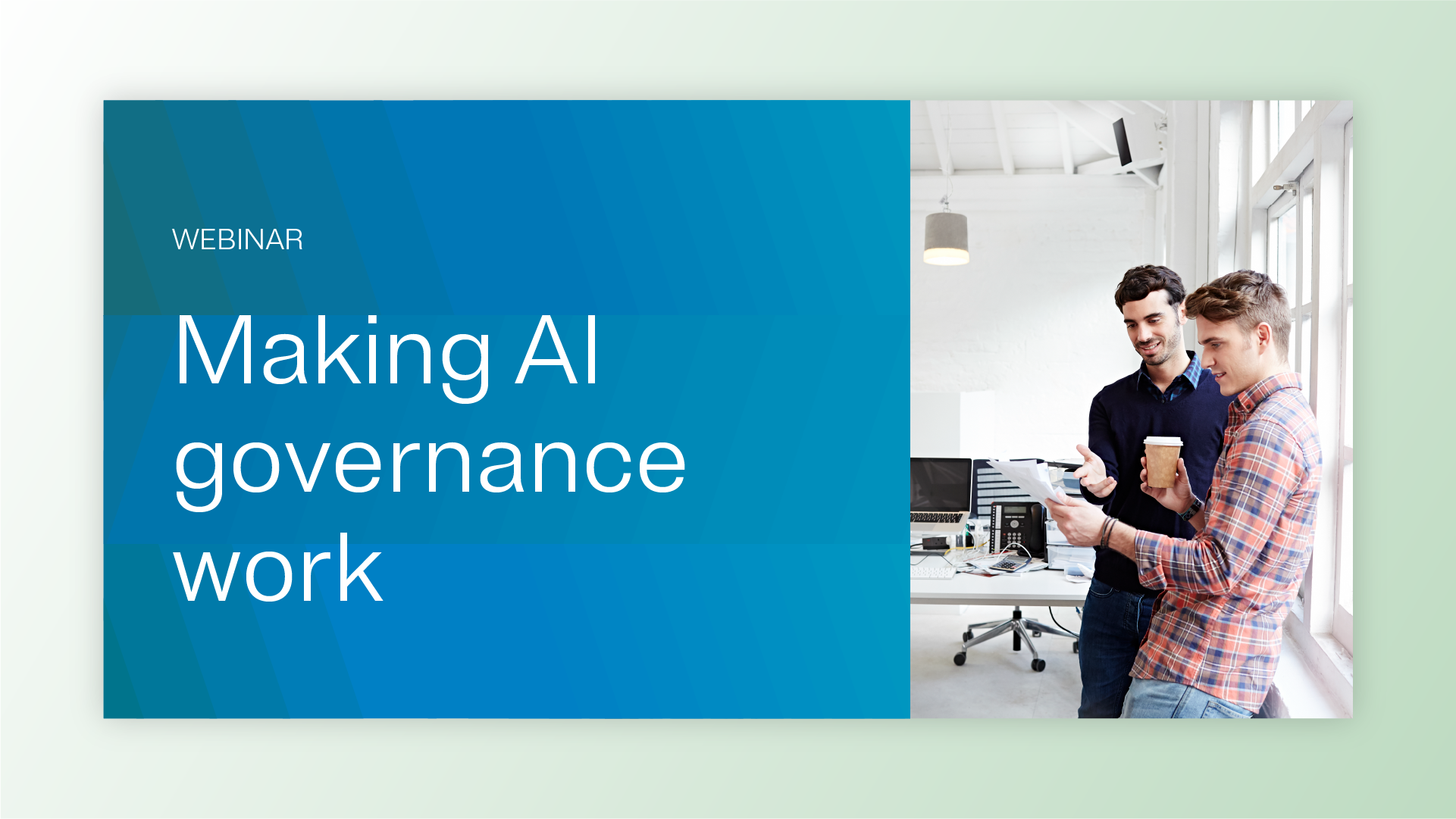
On-Demand
AI Governance
Making AI governance work: Practical insights and tools
Learn how to implement effective, scalable AI governance with insights from KPMG and OneTrust experts in this live webinar.
November 04, 2025
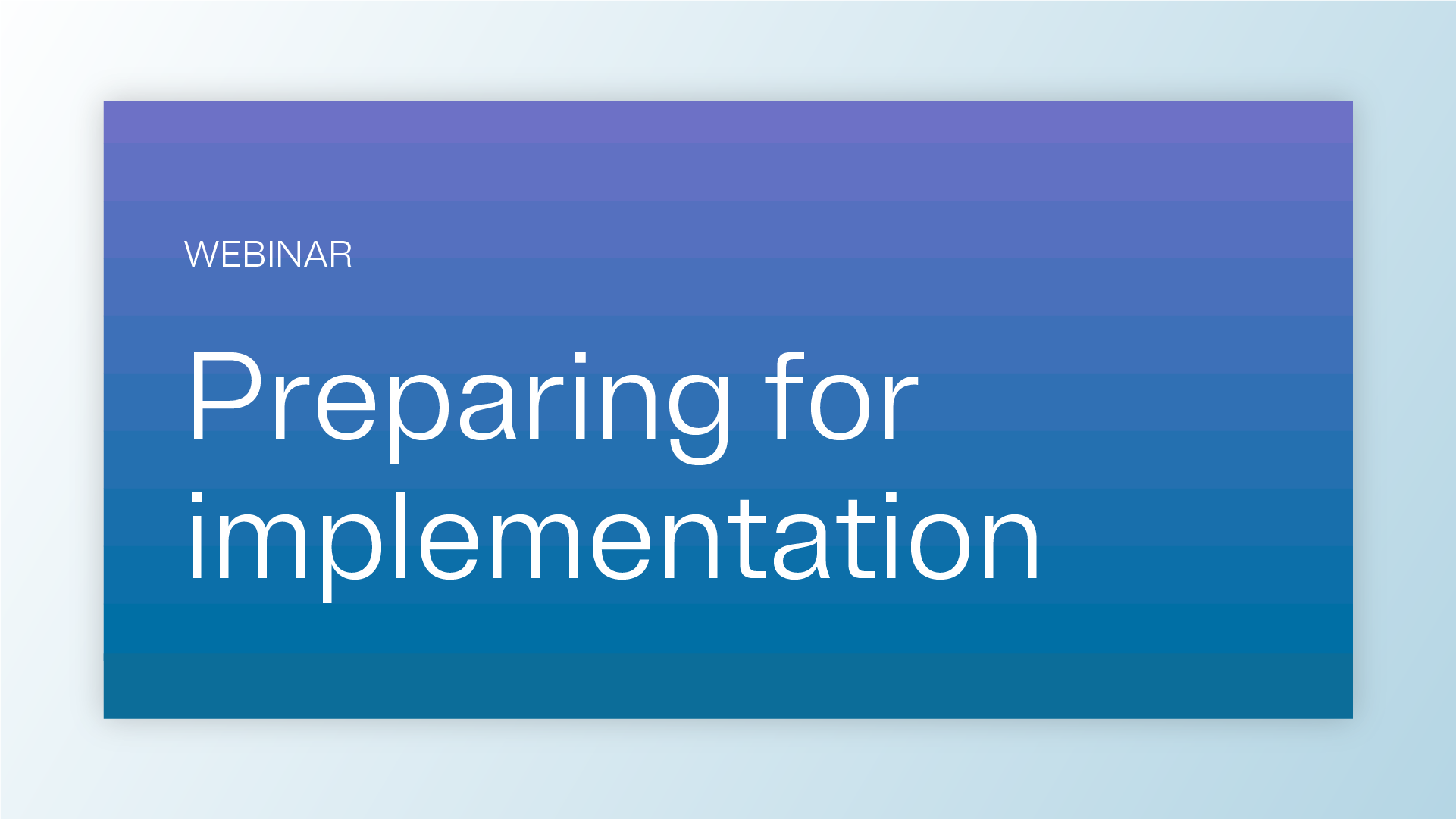
On-Demand
AI Governance
Preparing for implementation: Best practices to build your AI Governance tech stack
Accelerate AI governance deployment with expert tips. Learn to align with EU AI Act, ISO 42001 & NIST RMF. Get your roadmap to early success.
October 29, 2025
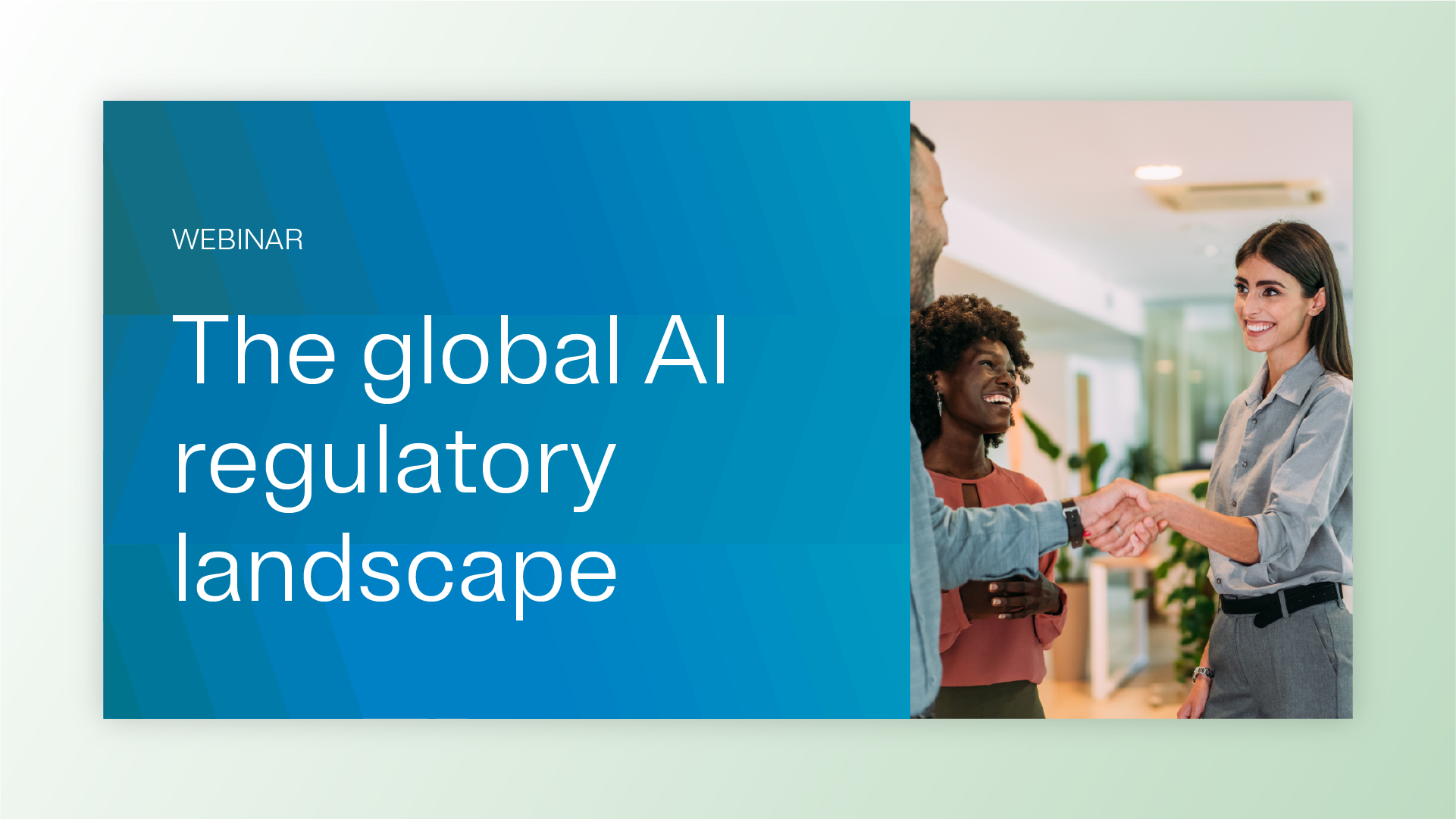
On-Demand
AI Governance
The global AI regulatory landscape: How privacy and compliance teams can stay ahead
This webinar will provide practical insights from the latest DataGuidance AI Report, helping you align AI practices with emerging standards and prepare for future regulatory scrutiny.
October 20, 2025

Infographic
AI Governance
AI Committee RACI Matrix: Roles, rights & responsibilities for Enterprise AI
Download the AI Committee RACI Matrix to define roles, rights, and responsibilities across the AI lifecycle and strengthen oversight in enterprise AI governance.
October 20, 2025

On-Demand
AI Governance
Operationalizing responsible AI with innovative governance: A live demo
In this demo webinar, you’ll see how OneTrust AI Governance orchestrates real-time oversight across the AI lifecycle—helping you manage risk, accelerate adoption, and align compliance without stalling innovation.
October 15, 2025

On-Demand
Privacy Automation
Global regulatory update: Q4 2025 privacy & data trends
Stay ahead of privacy and data protection in Q4 2025. Join OneTrust’s live update covering US state laws, EU AI Act readiness, children’s data, cross-border transfers, DORA, APAC trends, and key enforcement actions.
October 14, 2025

On-Demand
AI Governance
From chaos to control: Architecting your AI Governance stack
In this webinar, learn how AI architects can implement enterprise-wide governance. Discover strategies for aligning compliance, risk, and development workflows without slowing innovation.
October 01, 2025

On-Demand
AI Governance
EU AI Act in force: Key impacts and what's next
Learn what’s now enforceable under the EU AI Act. Join our webinar for key insights on GPAI rules, GDPR overlap, and compliance strategies.
September 15, 2025

Report
AI Governance
The 2025 AI-Ready Governance Report
Across 1,250 IT leader responses, one theme stands out — legacy governance can’t keep up with AI. See how teams are shifting their mindset.
September 08, 2025

Infographic
AI Governance
The future of AI-ready governance
AI is exposing the gaps in traditional governances. While technology has evolved at lightning speed, the tools and frameworks we use to manage it haven’t kept up.
September 07, 2025

On-Demand
AI Governance
Tech-enabled AI governance with KPMG trusted AI on OneTrust
Join this webinar with experts from OneTrust and KPMG to explore how enterprises can operationalize AI governance across people, processes, and platforms, shifting from reactive oversight to proactive assurance.
August 21, 2025

On-Demand
AI Governance
AI in B2B: Governance, risk & compliance at scale
Register now to hear our expert panel explore how AI adoption in B2B—across cybersecurity, supply chain management, and enterprise operations—is driving new privacy and compliance risks at speed.
August 14, 2025

eBook
Consent & Preferences
Building trust in the AI age: A guide to consent, privacy, and first-party data excellence
Learn how to build trust in the AI era with consent-first, privacy-focused strategies that maximize first-party data and ensure compliance.
August 12, 2025

On-Demand
Responsible AI
Strengthening data governance to power responsible AI
Join our webinar to explore how data leaders are strengthening AI governance with trusted data foundations, quality management, and transparent practices.
August 05, 2025
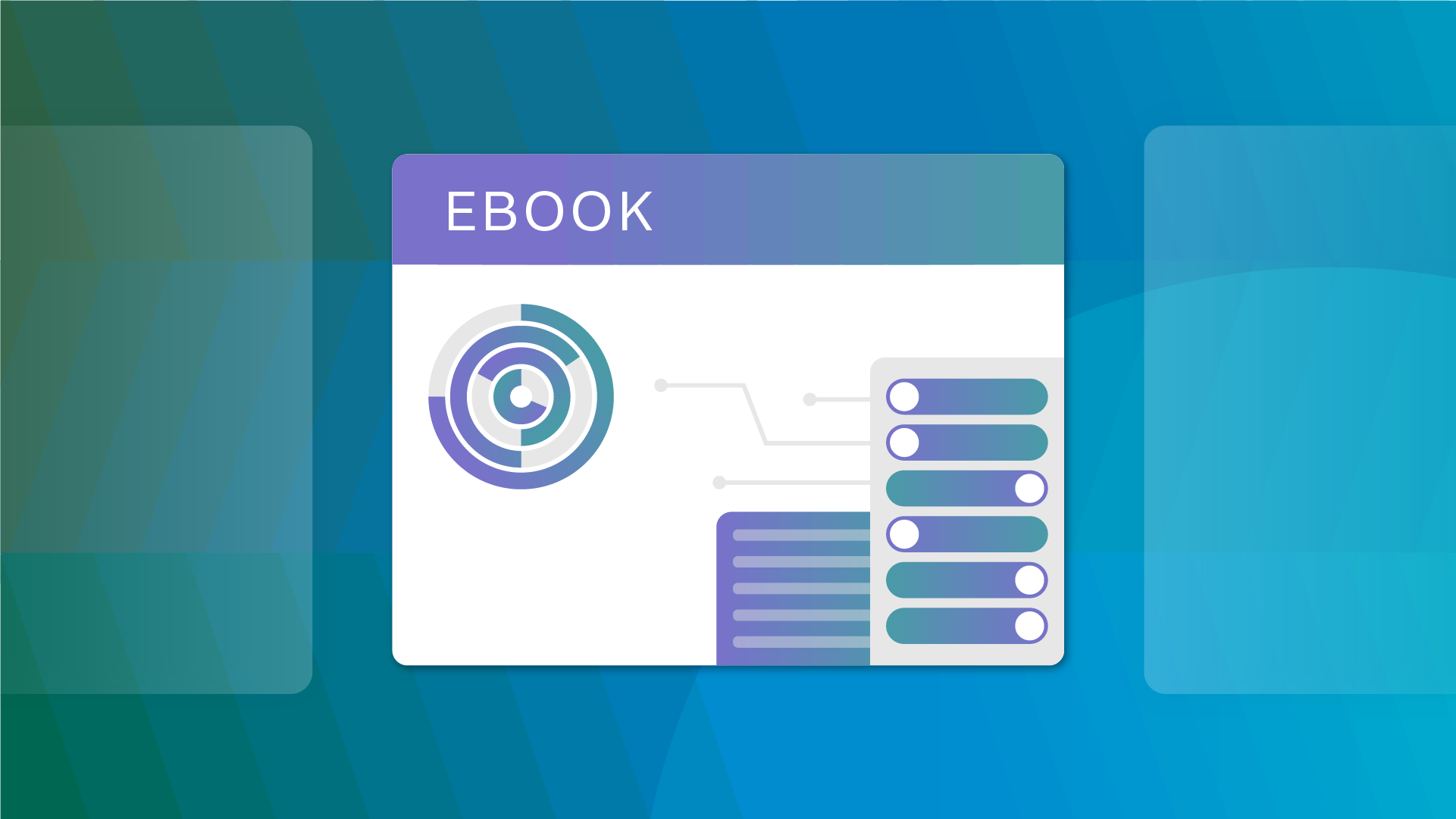
eBook
AI Governance
Building a future-ready AI governance program: Best practices, proven frameworks, and expert insights for operationalizing responsible AI
Build a future-ready AI governance program with expert insights, proven frameworks, and actionable steps to operationalize responsible AI at scale.
July 25, 2025

On-Demand
AI Governance
AI in B2C: Managing compliance, consent & consumer trust
Join our expert panel as we cover how businesses can create AI-driven experiences while maintaining compliance.
July 24, 2025

On-Demand
AI Governance
Leading the charge on trustworthy AI governance
Hear from experts on how AI program owners are operationalizing trustworthy AI governance and scaling responsible innovation.
July 23, 2025

Report
AI Governance
Discover how AI governance solutions are championing responsible AI at scale
OneTrust is recognized in The Forrester report, "The AI Governance Solutions Landscape, Q2 2025", among notable AI governance vendors. Our solution supports organizations that need scalable governance across technical and business teams.
July 23, 2025

White Paper
AI Governance
Operationalizing AI governance: How OneTrust powers oversight across the AI stack
Discover how OneTrust unifies policy, risk, and platform oversight to operationalize AI governance across your enterprise.
July 18, 2025

On-Demand
AI Governance
Global AI regulation: How to prepare for what’s now and what’s next
In this live discussion, privacy and legal experts will highlight comparisons and differences between enacted and emerging laws, and guide businesses on how to strike the right balance between compliance, risk mitigation, and innovation.
July 16, 2025

On-Demand
Responsible AI
Building AI governance with security at the center
Discover how security leaders are securing AI models, data, and infrastructure while driving risk-aware AI governance programs.
July 10, 2025

On-Demand
AI Governance
OneTrust Using OneTrust: Managing AI
Our internal strategies for governing AI applications responsibly, ensuring ethical use and compliance.
July 02, 2025

On-Demand
AI Governance
Bringing privacy to the AI table with data protection by design
Join our webinar to see how privacy professionals are embedding compliance and trust into AI governance programs from the start.
June 23, 2025

On-Demand
AI Governance
Forming the AI Committee: Roles and responsibilities for enterprise-wide governance
Learn how to form an AI Committee that aligns privacy, security, data, and AI teams for responsible, enterprise-wide AI governance.
June 05, 2025

On-Demand
Privacy Management
OneTrust Spring Release
We explore the latest release which introduces AI-assisted features that help privacy and third-party risk teams scale by reducing manual effort and friction, so they can focus on the work that matters most.
May 27, 2025

Webinar
AI Governance
Mastering cross-functional AI governance series
Join our AI Governance Committee webinar series to hear how cross-functional teams are building responsible AI governance across privacy, security, data, and AI.
May 21, 2025

On-Demand
AI Governance
Navigating the evolving US AI regulatory landscape: Key insights and implications for AI Governance
Join our webinar to learn how US AI regulations are evolving and how teams can strengthen and future-proof their AI governance strategy.
May 20, 2025

On-Demand
AI Governance
Navigating AI in business functions: Risk, responsibility & compliance
In this webinar, industry experts will explore key AI risks, regulatory considerations, and best practices for aligning AI initiatives with privacy, security, and ethical frameworks.
May 08, 2025

On-Demand
AI Governance
Responsible use of data & AI
Join the OneTrust Webinar for Northern European Countries on how to effectively govern data and AI with OneTrust’s integrated solution.
April 30, 2025

Report
AI Governance
State of data 2025: The now, the near, and the next evolution of AI for media campaigns
Discover how AI is transforming media campaigns. State of Data 2025 explores AI adoption, challenges, and strategies to optimize media planning and performance.
April 02, 2025
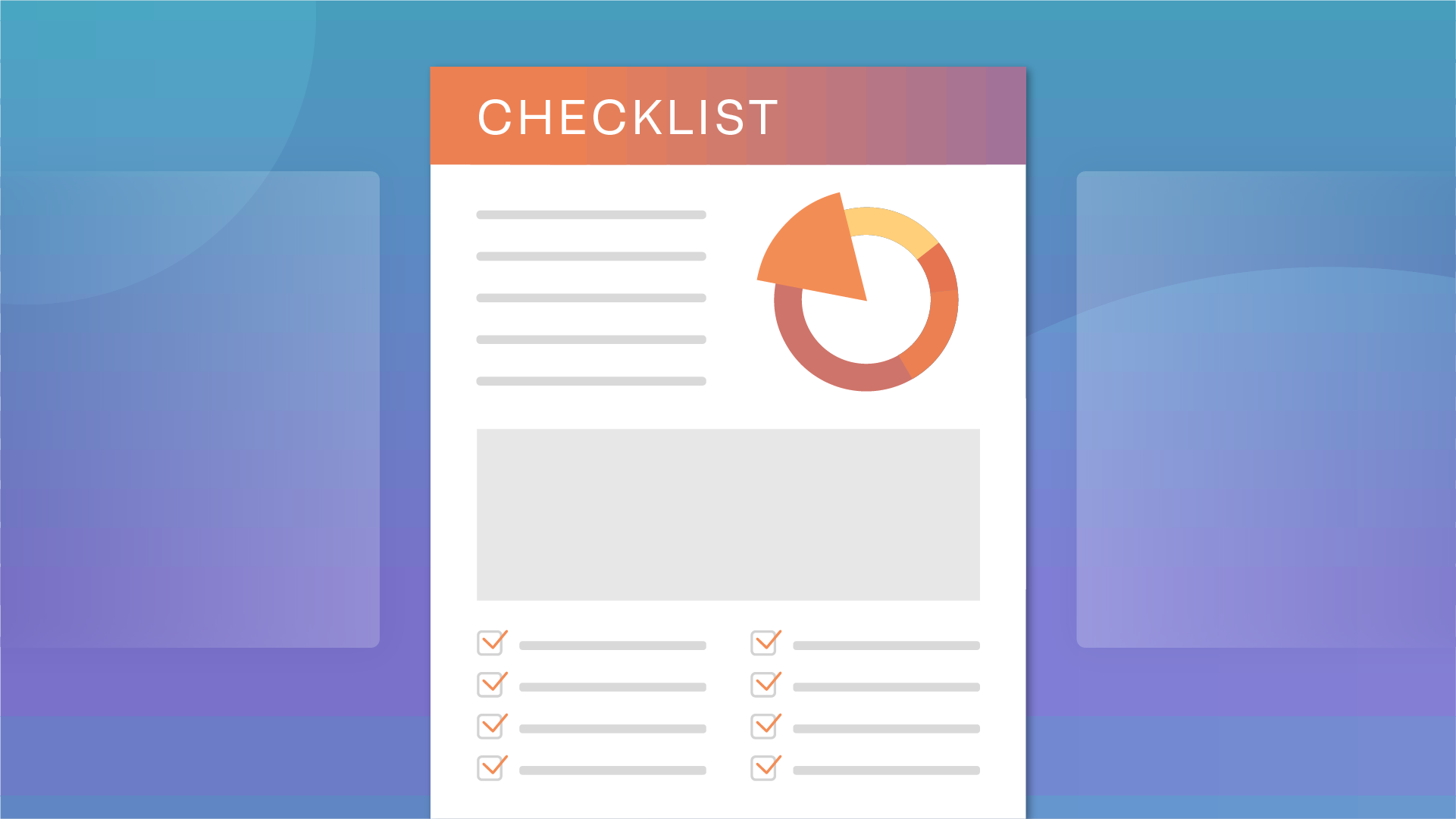
Checklist
AI Governance
Checklist for compliance with South Korea’s AI Basic Act
Ensure compliance with South Korea’s AI Basic Act using this step-by-step checklist. Get key requirements, risk management steps, and transparency guidelines.
March 24, 2025

eBook
AI Governance
South Korea's AI Basic Act: What businesses need to know and how to comply
Discover how South Korea’s AI Basic Act impacts businesses and get a step-by-step compliance checklist to ensure responsible AI adoption.
March 12, 2025

eBook
Responsible AI
Business rewards vs. security risks: A generative AI study
Download this study on Generative AI by OneTrust and ISMG and gain insights on how organizations are currently using AI and more.
March 11, 2025

Checklist
AI Governance
Essential checklist for responsible EU AI Act compliance
Download this EU AI Act checklist and gain insights on the Act's scope and methods in building a foundation for compliance.
February 13, 2025

On-Demand
AI Governance
Operationalizing the EU AI Act
In this webinar, we’ll explore how OneTrust helps organizations meet EU AI Act compliance by operationalizing AI governance frameworks.
January 28, 2025

eBook
AI Governance
Navigating the AI data landscape: A guide to building AI-ready infrastructure
Download our eBook to learn how to build AI-ready data infrastructure, tackle unstructured data, and meet generative AI's unique demands.
January 21, 2025

On-Demand
AI Governance
Automating metadata capture: Future-proofing data management for AI
This webinar will explore how automating metadata capture can streamline the management of unstructured data, making it AI-ready while ensuring data quality and security.
January 14, 2025

On-Demand
AI Governance
Overcoming the privacy pitfalls of GenAI (APAC)
Join us and learn about the data privacy risks of adopting GenAI and practical strategies on avoiding them.
January 08, 2025

White Paper
AI Governance
Operationalizing the EU AI Act with OneTrust: A playbook for implementation
January 02, 2025

On-Demand
AI Governance
ISMG hosted panel discussion: Generative AI in 2024 – Navigating business rewards and security risks
In this recorded panel discussion, experts from OneTrust, Forcepoint, Optiv, and Protiviti explore findings from ISMG’s recent global survey of over 400 business and cybersecurity professionals.
December 19, 2024

On-Demand
Responsible AI
Overcoming the privacy pitfalls of GenAI
This webinar will explore the key privacy pitfalls organizations face when implementing GenAI, focusing on purpose limitation, data proportionality, and business continuity.
December 10, 2024
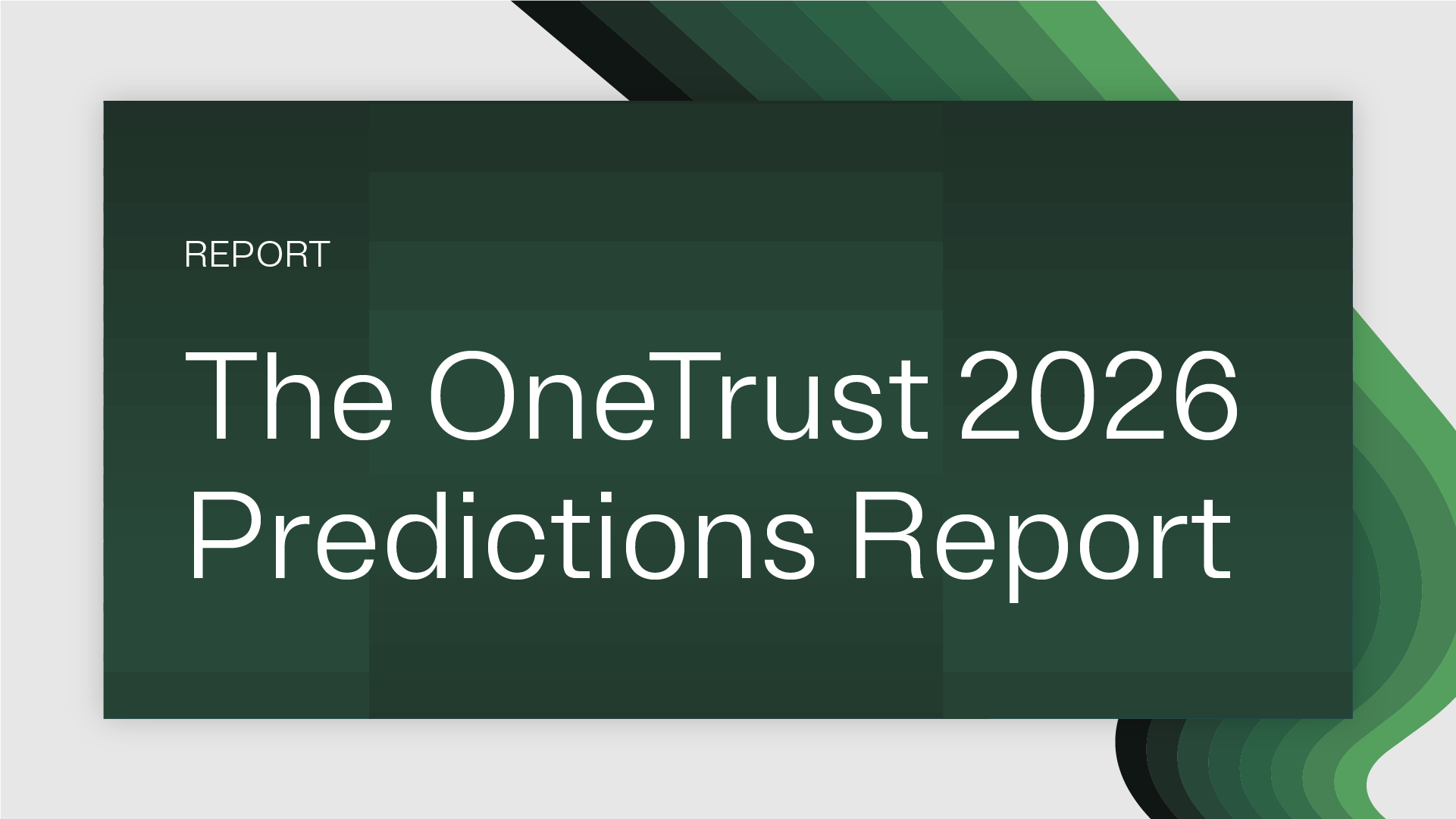
Report
AI Governance
Into the age of AI – Lessons from the future
Discover how AI-Ready Governance is redefining accountability, risk, and innovation. Download the OneTrust 2026 Predictions Report to explore key insights shaping responsible AI leadership.
December 02, 2024

On-Demand
Data Use Governance
The new data landscape: Navigating the shift to AI-ready data
This webinar will explore the how AI is affecting the data landscape, focusing on how data teams can extend common data practices to support AI’s unique use of data.
November 12, 2024

Checklist
AI Governance
AI project intake workflow checklist
Download our AI Project Intake Checklist to guide thorough assessments and ensure secure, compliant, and effective AI project planning from start to finish.
November 06, 2024

eBook
AI Governance
How to build an AI project intake workflow that balances risk and efficiency
Download our guide to building an AI project intake workflow that balances risk and efficiency, complete with a checklist for thorough, informed assessments.
November 05, 2024

On-Demand
Navigating the top 5 data sharing challenges
This webinar will uncover the top 5 data sharing challenges organizations face and demonstrate how advanced data governance solutions can streamline processes, improve data quality, and enhance compliance, allowing organizations to discover the full potential of their data assets.
October 31, 2024

White Paper
AI Governance
How the EU AI Act and recent FTC enforcements for AI shape data governance
Download this white paper to learn how to adapt your data governance program, by defining AI-specific policies, monitoring data usage, and centralizing enforcement.
October 30, 2024

Report
Responsible AI
Getting Ready for the EU AI Act, Phase 1: Discover & Catalog, The Gartner® Report
Getting Ready for the EU AI Act, Phase 1: Discover & Catalog, The Gartner® Report
October 16, 2024

On-Demand
AI Governance
California's approach to AI: Unpacking new legislation
This webinar unpacks California’s approach to AI and emerging legislations, including legislation on defining AI, AI transparency disclosures, the use of deepfakes, generative AI, and AI models.
October 15, 2024

eBook
AI Governance
Establishing a scalable AI governance framework: Key steps and tech for success
Download this coauthored eBook by OneTrust and Protiviti to learn how organizations are building scalable AI governance models and managing AI risks.
October 01, 2024

Report
Privacy Automation
Discover the economic benefits of OneTrust
Download this 2024 Forrester Consulting Total Economic Impact™ study to see how OneTrust has helped organizations navigate data management complexities, generate significant ROI, and enable the responsible use of data and AI.
September 24, 2024

On-Demand
Privacy Automation
Global regulatory update: Recent privacy developments and compliance trends
Join us for a webinar on the latest updates and emerging trends in global privacy regulations.
September 12, 2024

eBook
AI Governance
Data and AI governance for responsible use of data
Learn why discovering, classifying, and using data responsibly is the only way to ensure your AI is governed properly.
September 12, 2024

eBook
AI Governance
Securing reliable AI solutions: Strategies for trustworthy procurement
Download this eBook to explore strategies for trustworthy AI procurement and learn how to evaluate vendors, manage risks, and ensure transparency in AI adoption.
September 11, 2024

On-Demand
AI Governance
From policy to practice: Bringing your AI Governance program to life
Join our webinar to gain practical, real-world guidance from industry experts on implementing effective AI governance.
September 10, 2024

On-Demand
AI Governance
Ensuring compliance and operational readiness under the EU AI Act
Join our webinar and learn about the EU AI Act's enforcement requirements and practical strategies for achieving compliance and operational readiness.
August 22, 2024

Video
AI Governance
OneTrust AI Governance demo video
Learn how OneTrust AI Governance acts as a unified program center for AI initiatives so you can build and scale your AI governance program
August 12, 2024

On-Demand
AI Governance
AI Governance in action: A live demo
Whether your AI is sourced from vendors and third parties or developed in-house, AI Governance supports informed decision-making and helps build trust in the responsible use of AI. Join the live demo webinar to watch OneTrust AI Governance in action.
August 06, 2024

On-Demand
AI Governance
AI governance masterclass miniseries: EU AI Act
Discover the EU AI Act's impact on your business with our video series on its scope, roles, and assessments for responsible AI governance and innovation.
July 31, 2024

On-Demand
Third-Party Risk
Third-Party AI: Procurement and risk management best practices
As innovation teams race to integrate AI into their products and services, new challenges arise for development teams leveraging third-party models. Join the webinar to gain insights on how to navigate AI vendors while mitigating third-party risks.
July 25, 2024

Resource Kit
Responsible AI
EU AI Act compliance resource kit
Download this resource kit to help you understand, navigate, and ensure compliance with the EU AI Act.
July 22, 2024

On-Demand
AI Governance
From build to buy: Exploring common approaches to governing AI
In this webinar, we'll navigate the intricate landscape of AI Governance, offering guidance for organizations whether they're developing proprietary AI systems or procuring third-party solutions.
July 10, 2024

eBook
AI Governance
Navigating the ISO 42001 framework
Discover the ISO 42001 framework for ethical AI use, risk management, transparency, and continuous improvement. Download our guide for practical implementation steps.
July 03, 2024

On-Demand
Privacy Management
Scaling to new heights with AI Governance
Join OneTrust experts to learn about how to enforce responsible use policies and practice “shift-left” AI governance to reduce time-to-market.
June 25, 2024

On-Demand
AI Governance
AI Governance Leadership Webinar: Best Practices from IAPP AIGG with KPMG
Join out webinar to hear about the challenges and solutions in AI governance as discussed at the IAPP conference, featuring insights and learnings from our industry thought leadership panel.
June 18, 2024

On-Demand
AI Governance
Colorado's Bill on AI: Protecting consumers in interactions with AI systems
Colorado has passed landmark legislation regulating the use of Artificial Intelligence (AI) Systems. In this webinar, our panel of experts will review best practices and practical recommendations for compliance with the new law.
June 11, 2024

On-Demand
AI Governance
Governing data for AI
In this webinar, we’ll break down the AI development lifecycle and the key considerations for teams innovating with AI and ML technologies.
June 04, 2024

Report
AI Governance
GRC strategies for effective AI Governance: OCEG research report
Download the full OCEG research report for a snapshot of what organizations are doing to govern their AI efforts, assess and manage risks, and ensure compliance with external and internal requirements.
May 22, 2024

Report
AI Governance
Global AI Governance law and policy: Jurisdiction overviews
In this 5-part regulatory article series, OneTrust sponsored the IAPP to uncover the legal frameworks, policies, and historical context pertinent to AI governance across five jurisdictions: Singapore, Canada, the U.K., the U.S., and the EU.
May 08, 2024

On-Demand
AI Governance
Embedding trust by design across the AI lifecycle
In this webinar, we’ll look at the AI development lifecycle and key considerations for governing each phase.
May 07, 2024

On-Demand
AI Governance
Navigating AI policy in the US: Insights on the OMB Announcement
This webinar will provide insights for navigating the pivotal intersection of the newly announced OMB Policy and the broader regulatory landscape shaping AI governance in the United States. Join us as we unpack the implications of this landmark policy on federal agencies and its ripple effects across the AI ecosystem.
April 18, 2024

On-Demand
AI Governance
Data privacy in the age of AI
In this webinar, we’ll discuss the evolution of privacy and data protection for AI technologies.
April 17, 2024

Resource Kit
AI Governance
OneTrust's journey to AI governance resource toolkit
What actually goes into setting up an AI governance program? Download this resource kit to learn how OneTrust is approaching our own AI governance, and our experience may help shape yours.
April 11, 2024

On-Demand
AI Governance
AI in (re)insurance: Balancing innovation and legal challenges
Learn the challenges AI technology poses for the (re)insurance industry and gain insights on balancing regulatory compliance with innovation.
March 14, 2024

On-Demand
Privacy Management
Fintech, data protection, AI and risk management
Watch this session for insights and strategies on buiding a strong data protection program that empowers innovation and strengthens consumer trust.
March 13, 2024

On-Demand
Privacy Management
Managing cybersecurity in financial services
Get the latest insights from global leaders in cybersecurity managment in this webinar from our Data Protection in Financial Services Week 2024 series.
March 12, 2024

On-Demand
AI Governance
Government keynote: The state of AI in financial services
Join the first session for our Data Protection in Financial Services Week 2024 series where we discuss the current state of AI regulations in the EU.
March 11, 2024

White Paper
AI Governance
Getting started with AI governance: Practical steps and strategies
Download this white paper to explore key drivers of AI and the challenges organizations face in navigating them, ultimately providing practical steps and strategies for setting up your AI governance program.
March 08, 2024

On-Demand
AI Governance
Revisiting IAPP DPI Conference – Key global trends and their impact on the UK
Join OneTrust and PA Consulting as they discuss key global trends and their impact on the UK, reflecting on the topics from IAPP DPI London.
March 06, 2024

On-Demand
AI Governance
AI regulations in North America
In this webinar, we’ll discuss key updates and drivers for AI policy in the US; examining actions being taken by the White House, FTC, NIST, and the individual states.
March 05, 2024

In-Person Event
Responsible AI
Data Dialogues: Implementing Responsible AI
Learn how privacy, GRC, and data professionals can assess AI risk, ensure transparency, and enhance explainability in the deployment of AI and ML technologies.
February 23, 2024

On-Demand
AI Governance
Global trends shaping the AI landscape: What to expect
In this webinar, OneTrust DataGuidance and experts will examine global developments related to AI, highlighting key regulatory trends and themes that can be expected in 2024.
February 13, 2024

eBook
Privacy Management
Understanding the Data Privacy Maturity Model
Data privacy is a journey that has evolved from a regulatory compliance initiative to a customer trust imperative. This eBook provides an in-depth look at the Data Privacy Maturity Model and how the business value of a data privacy program can realised as it matures.
February 07, 2024

On-Demand
AI Governance
The EU AI Act
In this webinar, we’ll break down the four levels of AI risk under the AI Act, discuss legal requirements for deployers and providers of AI systems, and so much more.
February 06, 2024

On-Demand
Responsible AI
Preparing for the EU AI Act: Part 2
Join Sidley and OneTrust DataGuidance for a reactionary webinar to unpack the recently published, near-final text of the EU AI Act.
February 05, 2024

Data Sheet
Privacy Automation
An overview of the Data Privacy Maturity Model
Data privacy is evolving from a regulatory compliance initiative to a customer trust imperative. This data sheet outlines the four stages of the Data Privacy Maturity Model to help you navigate this shift.
February 05, 2024

Checklist
AI Governance
Questions to add to existing vendor assessments for AI
Managing third-party risk is a critical part of AI governance, but you don’t have to start from scratch. Use these questions to adapt your existing vendor assessments to be used for AI.
January 31, 2024

On-Demand
AI Governance
Getting started with AI Governance
In this webinar we’ll look at the AI Governance landscape, key trends and challenges, and preview topics we’ll dive into throughout this masterclass.
January 16, 2024

On-Demand
AI Governance
First Annual Generative AI Survey: Business Rewards vs. Security Risks Panel Discussion
OneTrust sponsored the first annual Generative AI survey, published by ISMG, and this webinar breaks down the key findings of the survey’s results.
January 12, 2024

Report
AI Governance
ISMG's First annual generative AI study - Business rewards vs. security risks: Research report
OneTrust sponsored the first annual ISMG generative AI survey: Business rewards vs. security risks.
January 04, 2024

On-Demand
AI Governance
Building your AI inventory: Strategies for evolving privacy and risk management programs
In this webinar, we’ll talk about setting up an AI registry, assessing AI systems and their components for risk, and unpack strategies to avoid the pitfalls of repurposing records of processing to manage AI systems and address their unique risks.
December 19, 2023

On-Demand
Responsible AI
Preparing for the EU AI Act
Join Sidley and OneTrust DataGuidance for a reactionary webinar on the EU AI Act.
December 14, 2023

On-Demand
Consent & Preferences
Marketing Panel: Balance privacy and personalization with first-party data strategies
Join this on-demand session to learn how you can leverage first-party data strategies to achieve both privacy and personalization in your marketing efforts.
December 04, 2023

On-Demand
AI Governance
Revisiting IAPP DPC: Top trends from IAPP's privacy conference in Brussels
Join OneTrust and KPMG webinar to learn more about the top trends from this year’s IAPP Europe DPC.
November 28, 2023

White Paper
Responsible AI
EU AI Act Conformity Assessment: A step-by-step guide
Conformity Assessments are a key and overarching accountability tool introduced by the EU AI Act. Download the guide to learn more about the Act, Conformity Assessments, and how to perform one.
November 17, 2023

eBook
AI Governance
Navigating the EU AI Act
With the use of AI proliferating at an exponential rate, the EU rolled out a comprehensive, industry-agnostic regulation that looks to minimize AI’s risk while maximizing its potential.
November 17, 2023

On-Demand
Responsible AI
OneTrust AI Governance: Championing responsible AI adoption begins here
Join this webinar demonstrating how OneTrust AI Governance can equip your organization to manage AI systems and mitigate risk to demonstrate trust.
November 14, 2023

White Paper
AI Governance
AI playbook: An actionable guide
What are your obligations as a business when it comes to AI? Are you using it responsibly? Learn more about how to go about establishing an AI governance team.
October 31, 2023

Infographic
AI Governance
The Road to AI Governance: How to get started
AI Governance is a huge initiative to get started with for your organization. From data mapping your AI inventory to revising assessments of AI systems, put your team in a position to ensure responsible AI use across all departments.
October 06, 2023

White Paper
AI Governance
How to develop an AI governance program
Download this white paper to learn how your organization can develop an AI governance team to carry out responsible AI use in all use cases.
October 06, 2023

eBook
Responsible AI
AI Chatbots: Your questions answered
We answer your questions about AI and chatbot privacy concerns and how it is changing the global regulatory landscape.
August 08, 2023

Webinar
Responsible AI
Unpacking the EU AI Act and its impact on the UK
Prepare your business for EU AI Act and its impact on the UK with this expert webinar. We explore the Act's key points and requirements, building an AI compliance program, and staying ahead of the rapidly changing AI regulatory landscape.
July 12, 2023

On-Demand
Responsible AI
AI, chatbots and beyond: Combating the data privacy risks
Prepare for AI data privacy and security risks with our expert webinar. We will delve into the evolving technology and how to ensure ethical use and regulatory compliance.
June 27, 2023

On-Demand
AI Governance
The EU's AI Act and developing an AI compliance program
Join Sidley and OneTrust DataGuidence as we discuss the proposed EU AI Act, the systems and organizations that it covers, and how to stay ahead of upcoming AI regulations.
May 30, 2023

White Paper
AI Governance
Data protection and fairness in AI-driven automated data processing applications: A regulatory overview
With AI systems impacting our lives more than ever before, it's crucial that businesses understand their legal obligations and responsible AI practices.
May 15, 2023

White Paper
AI Governance
Navigating responsible AI: A privacy professional's guide
Download our white paper and learn how privacy teams help organizations establish and implement policies that ensure AI applications are responsible and ethical.
May 03, 2023

On-Demand
AI Governance
AI regulation in the UK – The current state of play
Join OneTrust and their panel of experts as they explore Artificial Intelligence regulation within the UK, sharing invaluable insights into where we are and what’s to come.
March 20, 2023

Webinar
AI Governance
AI governance masterclass
Navigate global AI regulations and identify strategic steps to operationalize compliance with the AI governance masterclass series.

Webinar
AI Governance
Data Protection in Financial Services Week 2024 series
OneTrust DataGuidance and Sidley are joined by industry experts for the annual Data Protection in Financial Services Week.

Regulation Book
AI Governance
AI Governance: A consolidated reference
Download this reference book and have foundational AI governance documents at your fingertips as you position your organization to meet emerging AI regulations and guidelines.

Webinar
Privacy & Data Governance
AI Governance Maturity Framework webinar series
Join OneTrust and several of our partners for webinars focusing on the fundamentals of building effective privacy programs.

In-Person Event
Privacy & Data Governance
AI in action roadshow l PA Consulting
Join OneTrust and PA for an AI governance roundtable over lunch in a city near you. Learn how firms use AI to manage AI and automate compliance for 2026.

Webinar
Technology Risk & Compliance
Risk in 30'
Join our risk management webinar series to learn how AI, NIS2, and modern TPRM practices help teams reduce manual work and strengthen resilience.
